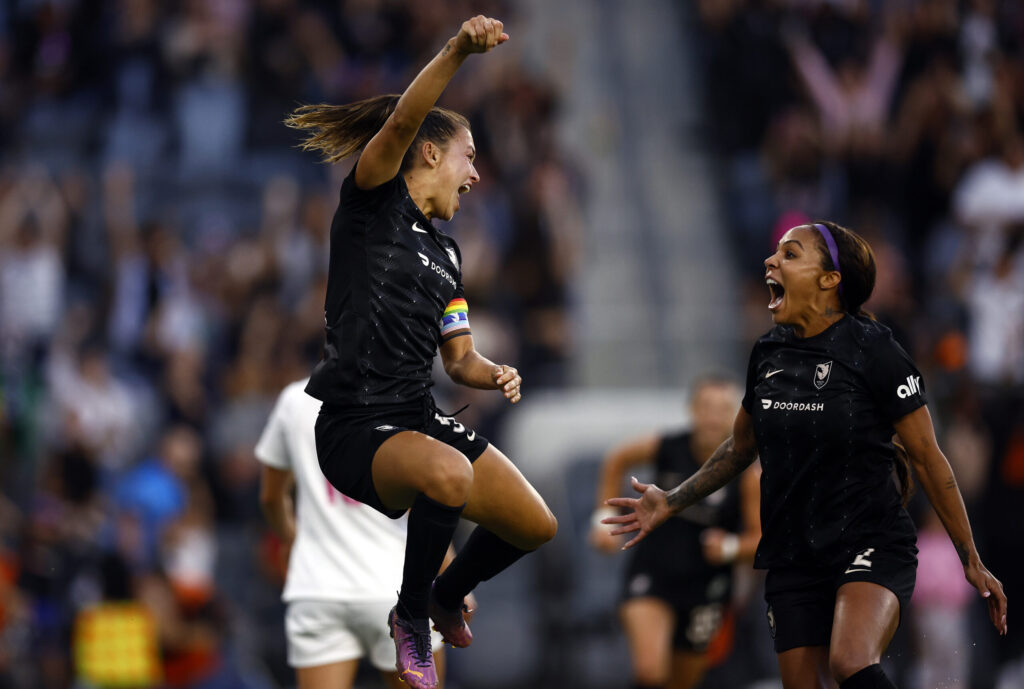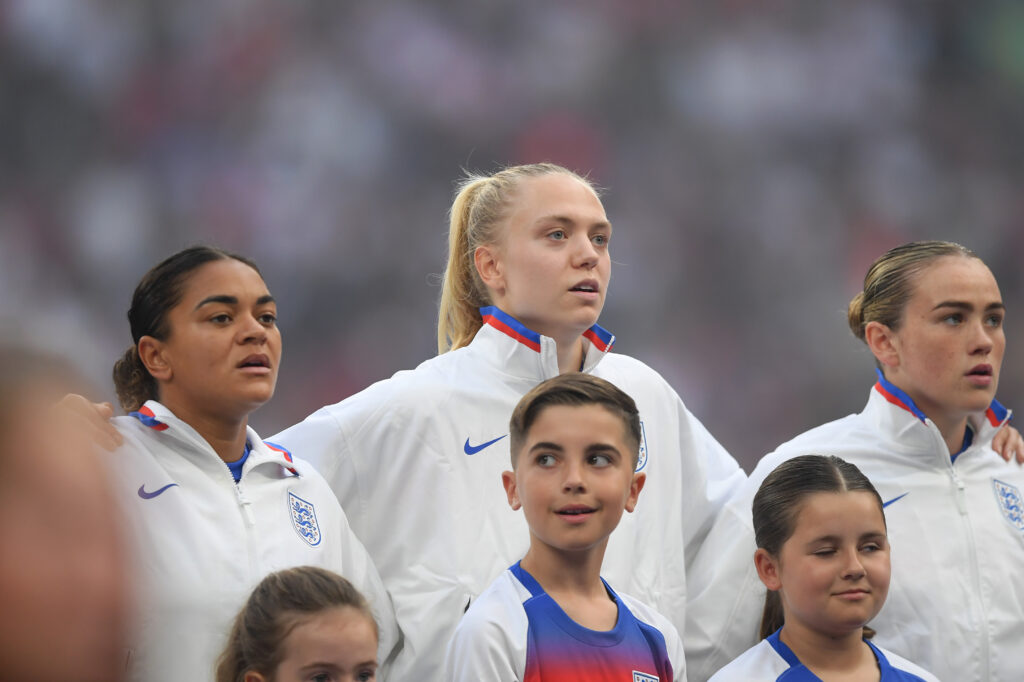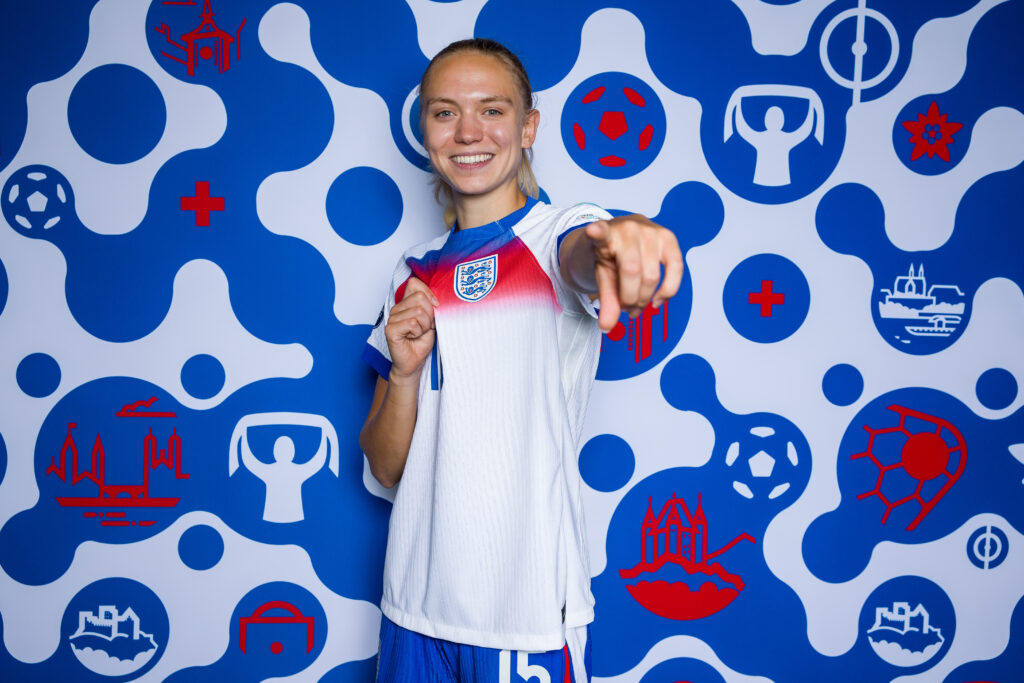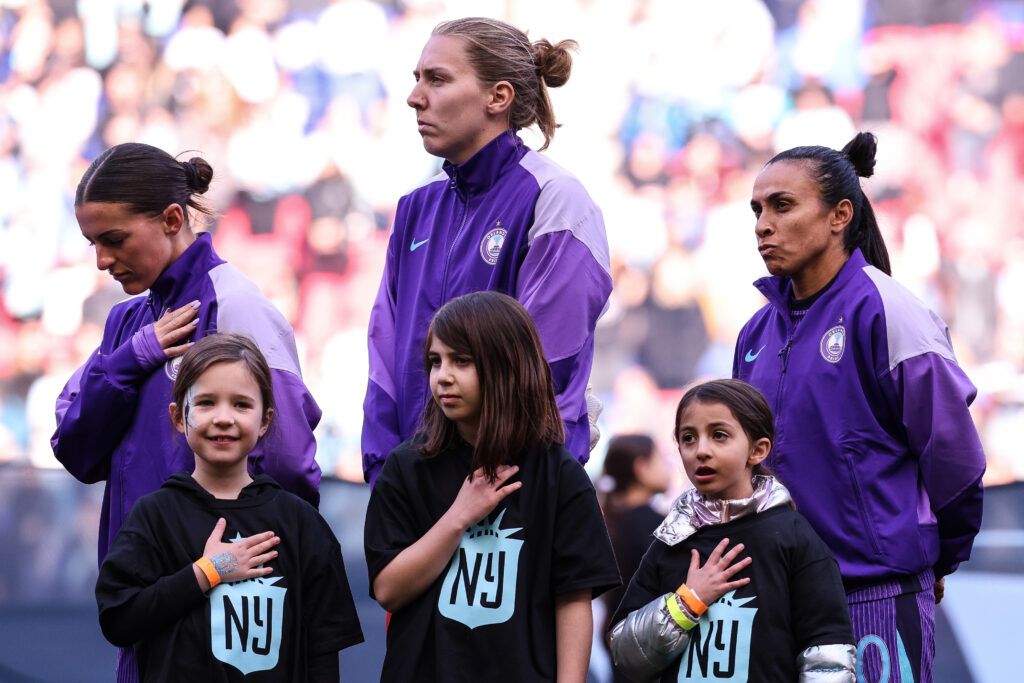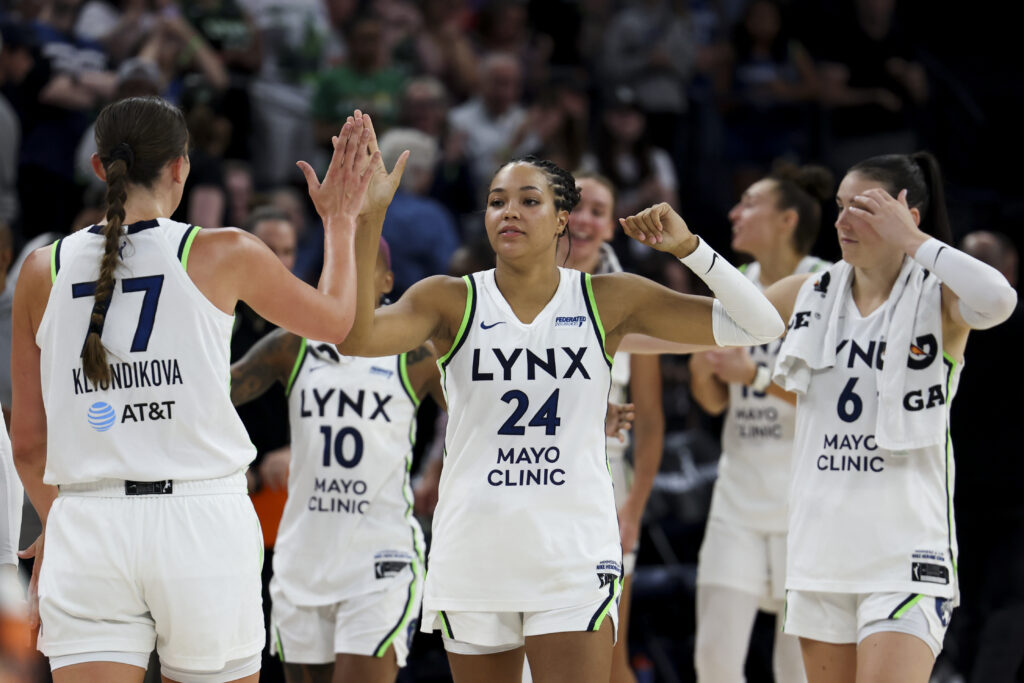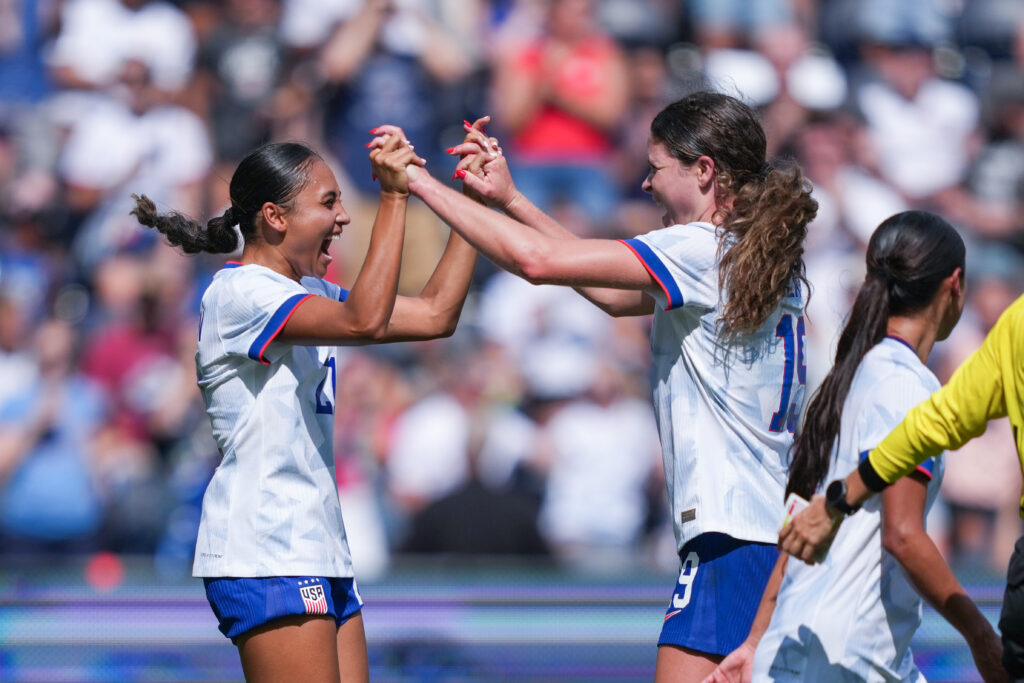One of the NWSL’s highest-profile clubs is getting the Hollywood treatment this week, as the new three-part HBO documentary “Angel City” airs for the first time. The film covers the Los Angeles club from its inception, when a high-profile group led by team president Julie Uhrman, her business partner Kara Nortman and Academy Award-winning actress Natalie Portman brought their idea for a new kind of ownership model to life.
The film documents in great detail the building blocks to creating a team in the still-young NWSL, as Uhrman leads the charge in turning a dream into a very successful reality. It then follows the highs and lows of the club’s inaugural season as an expansion side, during which Angel City battles to make the 2022 NWSL playoffs.
“Angel City” portrays a strong proof of concept — that women’s sports can and should be treated as legitimate business — while also telling a classic sports story.
The film both serves as an entry point for casual fans to women’s soccer and provides diehard fans with an intimate, behind-the-scenes look at the club. Footage of NWSL teams has been compiled in the past (the likely never-to-be-seen documentary on Paul Riley’s North Carolina Courage being perhaps the most notable), but no club has ever been the subject of quite so deep a dive.
Portman’s production company not only created the documentary, but the Oscar winner also pitched the players on the idea of filming their season, starting from the very first team meeting. Players suddenly had to balance their jobs on the field with their appearances on camera.
“Natalie came in and really sat down with us and said her vision and why she wanted to do it,” says Angel City captain Ali Riley. “And it made everyone feel so much more comfortable with it.”
When the stars align, everything changes. #AngelCity premieres this May on @hbomax. pic.twitter.com/lKu7jFwRDI
— HBO (@HBO) March 23, 2023
Director Arlene Nelson immersed herself in the world of women’s soccer and also took a trust-building approach, giving players her phone number early on, with an open offer to share any concerns.
“I think you see some of these reality shows, and you just get worried about how you’re going to be presented and what kind of drama they’re going to be looking for,” Riley says, noting that players were assured no one was looking to create a villain in order to make the documentary compelling.
“It was a real dance to build trust,” Nelson agrees. “To show up, and at the same time to give them their space.”
Sports documentaries have increasingly become effective ways to grow fandom, as seen in the wildly successful Netflix Formula 1 series “Drive to Survive,” HBO’s “Hard Knocks,” and Amazon Prime’s extensive “All or Nothing” series. The goal with these films has been to explain the ins and outs of a team or league to newcomers, while also not shying away from the conflicts that arise from high-performance environments in professional sports.
The makers of “Angel City” took a very similar approach.
Players got a chance to share their backstories as they embarked on one of the more unique journeys in their NWSL careers, playing for sold-out crowds and in front of A-listers like Jennifer Garner and Serena Williams. The scenes of triumph are epic, but a documentary free of tension won’t inspire fans to engage in the same way, and “Angel City” draws viewers in enough to feel the stakes.
“I think that it’s important to show that it all doesn’t come easy, and that there is friction, and that is where the trust comes in,” Nelson says.

The film offers a glimpse into many conversations between Angel City head coach Freya Coombe and general manager Eni Aluko, whose management styles clashed at times, leading to Aluko leaving the club before the end of the 2022 season. The team’s Challenge Cup campaign isn’t sugar-coated either, with Coombe calling the defensive performance “not even professional level” in a postgame exchange with Uhrman and season-long challenges presented by the team’s no-trade clause.
“Everyone’s worried about looking like an asshole on HBO,” Riley jokes. “But then you’re like, we don’t want this to be like everything is perfect.”
Angel City dealt with more than a few bumps in the road during their first year: It took them time to find a settled training facility, their head coaching hire came under intense scrutiny, and the NWSL fined the club for tampering before the season even began.
The film also doesn’t shy away from midfielder Katie Cousins’ controversial Instagram story about wearing Pride jerseys, her teammate’s reactions and the club’s internal response. And even as the team racked up accomplishments off the field — in both sponsorships and ticket sales — they weathered a series of serious injuries that greatly affected the course of their season. The setbacks at the center of the docuseries are the season-ending ACL tear forward Christen Press suffered halfway through the season and the limited availability of Sydney Leroux, whom ACFC acquired in a midseason trade with the Orlando Pride to aid the attack.
“I feel emotional just talking about it,” Riley says. “Because it’s hard to live it once, let alone to see it again in slow motion. The optimism of how the season was starting, and then with Christen getting injured and then having Syd [be injured], it’s just this rollercoaster. But that was so real.”

In one scene, defender Paige Nielsen expresses her disappointment at missing the team’s regular season home opener due to an injury, while simultaneously contemplating the risk of moving her wife across the country to join her in Los Angeles.
“I just feel a lot of pressure sometimes,” Nielsen says quietly to a trainer before trailing off.
“We’re not being paid millions of dollars to do this,” Riley says. “We make a lot of sacrifices to do what we love. You see the passion. The injuries are such a real part of sport.”
The other part of the sport that “Angel City” prioritizes is the game footage, which is immaculate. Nelson brought up to six camera operators to Angel City home matches, capturing close-up and expansive footage that gives the viewer a sense of what it’s like to be on the ground level of an NWSL match.
“We wanted you to feel the sweat dripping off their brows and the clashing of these gladiator-like warriors, we wanted you to feel like you were immersed in the game,” Nelson says. “It was just as important to us as an intimate single camera interview.”
As fans of women’s soccer know well, those details matter because they represent a level of equity the NWSL is still pushing toward in its 10th season. No one in the film was more adamant for growth in NWSL broadcasts than Portman, who lightly grills commissioner Jessica Berman on the league’s TV presentation in one “Angel City” scene.
“We’ve talked so much about the quantity of coverage and women’s sports, but it’s also about the quality,” Riley says. “There’s studies even showing that women players, athletes, are sexualized in how they’re documented, or just the camera angles, and we struggle with it sometimes in NWSL.”

In the pursuit of attracting new fans, the film embodies the concept that you have to educate as well as entertain.
“Sometimes you have to tell people what is cool and what to support. They don’t know what they don’t know,” Riley says.
Taking a page from the club it documents, “Angel City” is a story packed with ideas, successes and adversity, painting the picture of a club making incredible strides off the field while the team strives to join the upper echelon of the league.
“It’s something that I want every player to experience, especially women, to have the kind of attendance numbers we have, to be part of a club that has these strong values, that really wants to extend beyond ourselves,” Riley says. “What we have in Angel City is this huge platform and so many eyes on us, and I think the players are doing such an amazing job of taking advantage of that.”
“Angel City” premieres Tuesday at 9 p.m. ET on HBO.
Claire Watkins is a Staff Writer at Just Women’s Sports. Follow her on Twitter @ScoutRipley.
